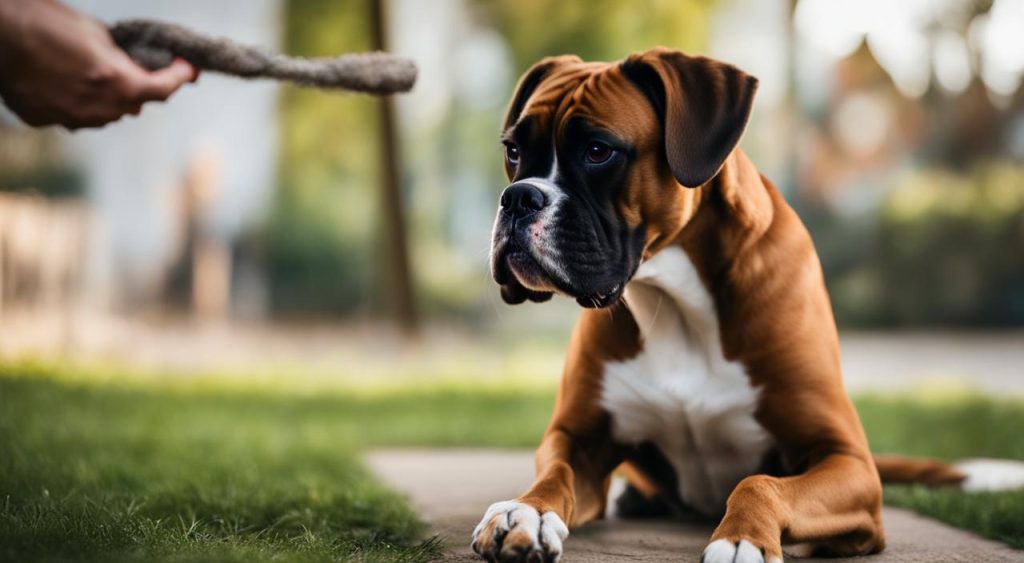Boxers are known for their loyalty, intelligence, and protective nature. However, their unique characteristics also require some special considerations when it comes to training and socialization. Proper socialization is essential for Boxers, as they can be fiercely protective of their owners. Starting socialization early, introducing them to friendly people and pets, and enrolling in training programs like the AKC Family Dog Program can help with their social development. Boxers also need to be introduced to grooming early and positively reinforced to associate grooming tools with rewards. Teaching basic obedience commands is important to prevent destructive behaviors, and Boxers respond best to reward-based positive reinforcement training. Potty training is usually easy for Boxers, as they are clean dogs who quickly learn where to go. As they mature, Boxers can be involved in sports and activities like AKC competitions to further their training. It’s important to regulate their exercise, as Boxers are a late-maturing breed. By one year old, with proper training and socialization, Boxers can be well-trained companions that excel in various activities.
Key Takeaways:
- Boxers require proper socialization and early introduction to grooming.
- Reward-based positive reinforcement training is best for Boxers.
- Potty training is usually easy for Boxers.
- Regulating exercise is important for Boxers.
- With consistent training and socialization, Boxers can become well-trained companions.
Tips for Boxer dog training
When it comes to training Boxer dogs, there are several important tips to keep in mind.
Exercising your Boxer before training sessions can help them focus and expend excess energy.
Finding the right rewards, whether it’s treats or toys, is crucial for motivation during training.
Rewarding good behavior and focusing on positive reinforcement can help shape your Boxer’s behavior.
Consistency is key in training Boxers, and everyone in the household should be on the same page with rules and expectations.
Structured playtimes and regular exercise are essential for Boxers to prevent boredom and destructive behaviors.
Teaching basic tricks and providing mental stimulation can also contribute to your Boxer’s overall training.
Seeking help from a veterinarian or professional trainer can be beneficial for specific training issues.
Conclusion
Boxer dogs are highly regarded for their loyalty, intelligence, and trainability. While their energetic nature and occasional stubbornness can pose challenges, effective training techniques and consistent effort can yield successful outcomes.
Socialization plays a pivotal role in shaping a well-rounded Boxer. Introducing them to friendly people and pets early on, enrolling in training programs such as the AKC Family Dog Program, and gradually exposing them to grooming tools are crucial steps in their development.
Positive reinforcement training is key when working with Boxers. Reward-based approaches and teaching basic obedience commands can deter destructive behaviors while fostering a strong bond between you and your furry companion. Additionally, regulating their exercise and engaging them in sports or activities can further enhance their training.
By remaining patient, persistent, and loving throughout the training journey, Boxer dogs can become well-behaved companions and cherished members of your family. Remember, consistency, socialization, exercise, positive reinforcement, and setting clear rules are vital components for successfully training these remarkable dogs.





